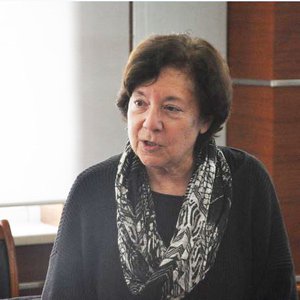Turkish Language
Why Study Turkish?
Welcome to the Turkish Language program website at Syracuse University. Turkish has been taught in the Department of Languages, Literature and Linguistics since 2003 and since 2004 both Turkish 101/102 and Turkish 201/202 have been offered.
About Turkish
Turkish belongs to the Turkic language family and in terms of the number of speakers it is the largest in the Turkic family, with over 70 million speakers. Turkish is the official language of the Turkish Republic, where it is the native language of over 90% of the population. Turkish is also spoken in Cyprus, by Turkish Cypriots. The largest number of Turkish speakers outside Turkey is to be found in the Balkans, especially Bulgaria, but also in the former Yugoslavia and Greece. Furthermore, there are large numbers of Turkish "guest workers" and their families in a number of west European countries, especially in Germany.
One of the most striking properties of Turkish is its morphology, i.e. the structure of its words: there are neither prefixes nor infixes. All of the derivational and inflectional morphemes are suffixes. One can build very long words that can correspond to entire sentences in more familiar languages such as English. An often cited example is the following:
Amerikalılaştıramadıklarımızdanmıydılar?
Meaning "Did they belong to those whom we were unable to Americanize?"
Other interesting properties of the language concern its word order: the verb of a regular sentence is at the very end, the subject at the beginning, and the object is between the subject and the verb. This is the same word order also found in Korean and Japanese-an observation leading to the tentative hypothesis (the Altaic Hypothesis) that these languages, the Turkic languages and Mongolian are all historically related. Yet another striking property of Turkish is that most of its native words obey a generalization called Vowel Harmony: all of the vowels within a regular native word share certain properties of articulation.
A few observations about the geography of the Turkish Republic: Turkey is situated in an area where it is a link between Europe and Asia. It is bordered in the northwest by Greece and Bulgaria, in the east by the republics of Armenia, Georgia and Azerbaijan, and by Iran, and in the south by Syria and Iraq.
Anatolia (or Asia Minor), the Asian part of Turkey (ca. 97% of the geographic area of Turkey) is surrounded by four seas: the Black Sea to the north, the Mediterranean to the south, the Aegean to the west and the Sea of Marmara between the European and Asian land masses. Thrace, the European part of the country, is surrounded by the Black Sea, the Sea of Marmara, and the Aegean; the European and the Asian parts of the country come very close together at two straits: the Bosporus, and the Dardanelles.
Why Turkish?
There are many benefits of learning a foreign language. Some are well known others are less, but they are just as important, nonetheless. Learning a foreign language basically promotes communication and understanding between people from different geographic locations and cultural backgrounds, thus serving to build a more peaceful world.
Spoken by almost one hundred million people world-wide, Turkish can be one of the most useful foreign languages to learn, especially due to Turkey’s geographical location, which has been referred to many times as a bridge between the West and the East. Learning Turkish will provide you with an exposure to the ideas and habits of another culture, as well as means to move within that culture, by traveling, talking to travelers or to students studying in the U.S. or even just watching films and reading books. The rewards of learning a foreign language will be even richer if it's a language that is less commonly studied by your compatriots, and which comes from a part of the world more different from your own. Turkey has a very rich history from Biblical times to the earliest human civilizations, from the first Christians to the Islamic civilizations. Therefore, students who would really like to have a greater global perspective and be an agent of positive change in U.S. - Middle Eastern relations are encouraged to study Turkish.
There are also real job prospects available for American students who reach an intermediate level of Turkish language ability as Turkey currently has the sixteenth largest economy in the world, and is rapidly expanding. Turkey is also the emerging economy power with geographical and political ties with Central Asian and Middle Eastern countries. Therefore, the U.S. government is seeking to hire more American nationals with knowledge of Turkish. The private sector's interest in communicating with the people of Turkey and their growing economy has also increased substantially.
It is also worthwhile to keep in mind that Turkish language is written in Latin alphabet and pronounced as it is written, so it is easy to learn - even to start reading and writing well at an early stage of learning.
Turkish Language Placement
All students who would like to take Turkish are required to take a language placement survey, regardless of previous exposure to or instruction in Turkish.
Please note that the language placement survey starts the placement process. Our goal is to place students at the level that best matches their skills.
After completing the survey, you will either be given a placement or be required to take a further assessment. Please refer to this link to navigate this process.
Language Placement Exams - College of Arts & Sciences at Syracuse University.
If you have any questions regarding your placement, contact the Turkish Language Coordinator, Jaklin Kornfilt.
Questions concerning fulfilling your program’s language requirement can be directed to the Department Chair at lllchair@syr.edu.
Faculty

Jaklin Kornfilt
Professor, Linguistics and Turkish Program Coordinator
kornfilt@syr.eduPhone: 315.443.5375
